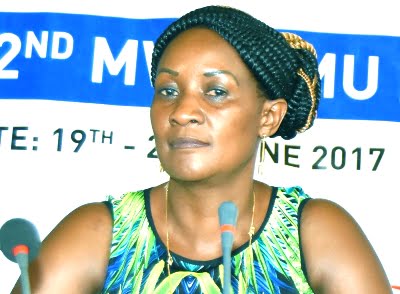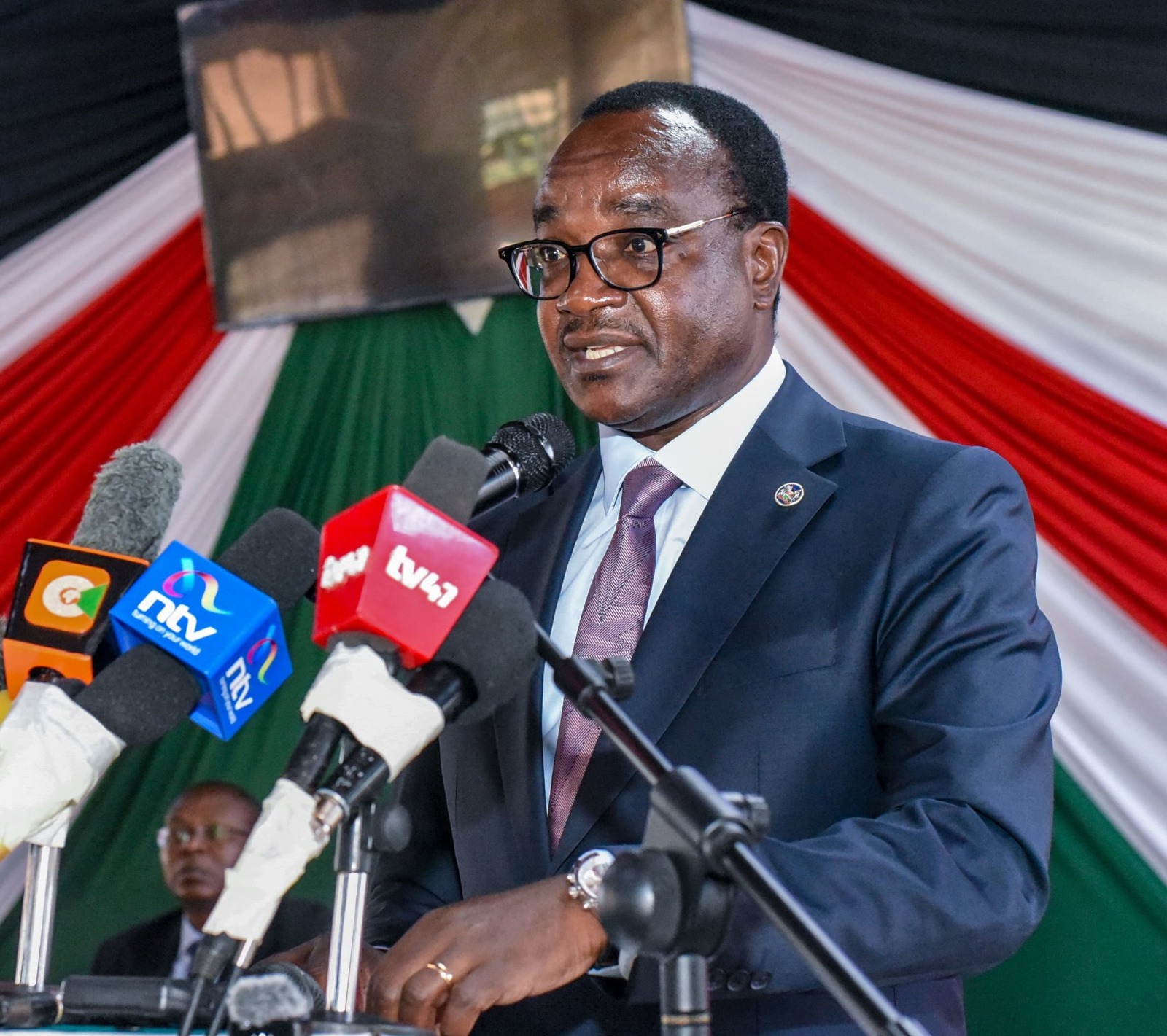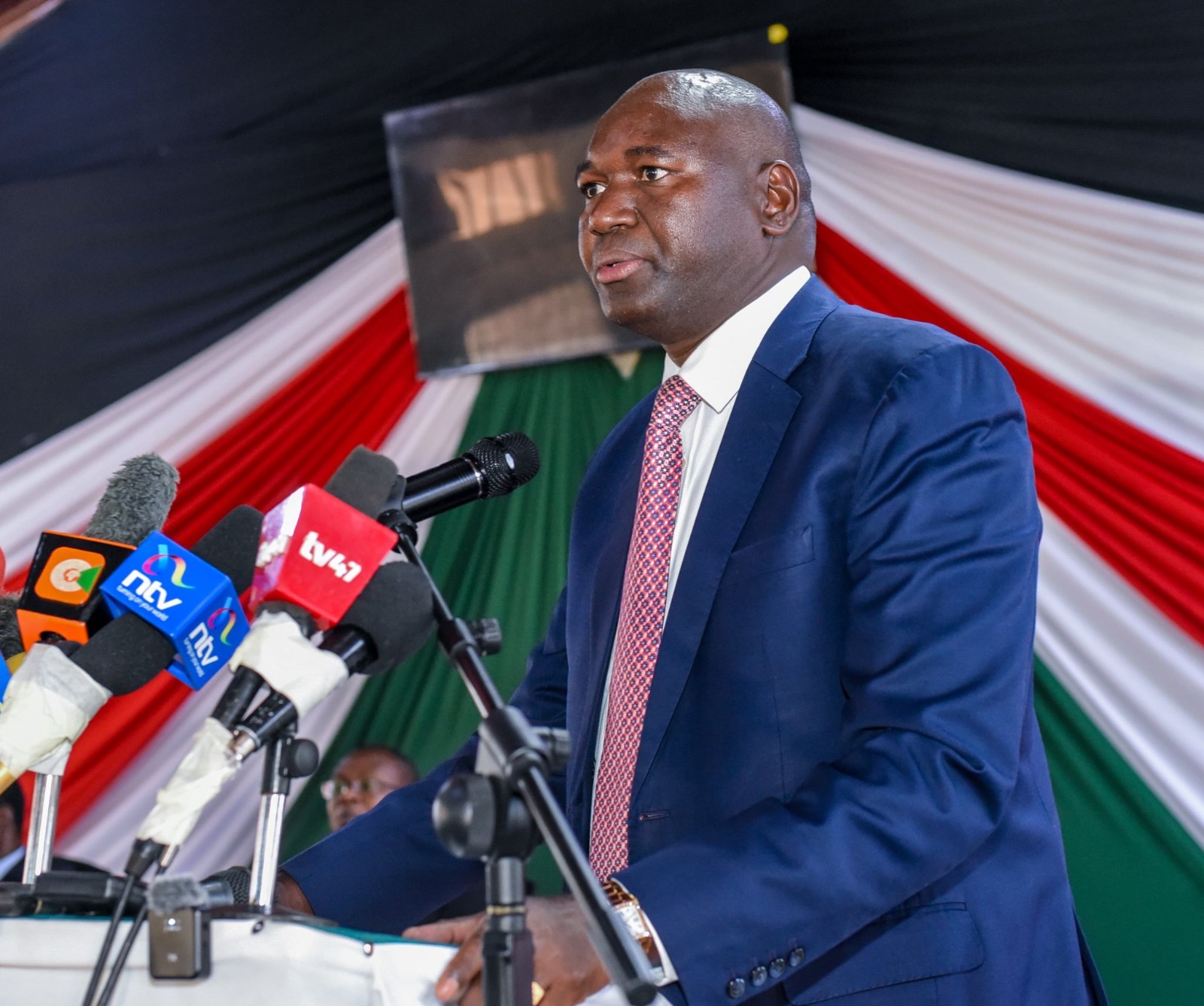By Azael Masese
Dr Nancy Macharia will serve her second and final five-year term as the Teachers Service Commission Chief Executive Officer/Secretary.
This follows her reappointment, bringing to an end debate, notably among teachers on the renewal of non-renewal of her second and final five-year term at the helm of the Commission.
Though eligible for reappointment, Midrift Human Rights Network and the Law Society of Kenya President Nelson Havi termed this unconstitutional.
The Kenyatta University graduate of English/Literature, employed as an Assistant Teacher over 30 years ago, rose to the position of Deputy Principal.
Later, she joined the secretariat as a staffing officer, rose through the ranks to become the 9th and first woman Commission CEO, replacing Gabriel Lengoiboni, who retired June 30th 2015.
If she completes the two terms, she will become the second longest serving Commission Secretary, only after Jackson Kang’ali, who served between 1982 and 1998.
Unlike her first appointment, when the position was advertised, attracting 69 candidates, where four were shortlisted, this time round, the path was shunned.
Before her appointment, Macharia, served as the Director, Teacher Management, the heartbeat of the Commission’s operations.
While at the top, the Commission negotiated with teacher unions and signed the Collective Bargaining Agreement (CBA) on October 26th 2016.
Under the CBA, teachers receive enhanced salaries following the implementation of the four phases running between July 1st 2016 and June 1st 2021.
The last phase of the CBA will be implemented from July 2020 and teacher unions are eager to negotiate another cycle of CBA effective July 1st 2021.
How she handles any future negotiations with teachers’ unions will largely define her legacy at the Commission.
During her tenure, the Commission introduced the controversial Teacher Performance Appraisal and Development (TPAD).
TSC argues that TPAD is a performance-based module that has seen teacher absenteeism reduce drastically in the country’s primary and secondary schools.
While at the helm, delocalization policy was introduced, where senior administrators are not expected to serve in their home counties a move not received so well amongst teachers.
Besides, the Commission introduced a validation exercise where teachers had the option of quitting as members of teacher unions.
The move, which received condemnation from Kenya National Union of Teachers (KNUT) has seen the once giant union lose membership as well as massive financial resources.
With the frosty relationship between TSC and KNUT on the decline, the Commission threatened to trash the Recognition Agreement and deregistered KNUT’s Secretary General Wilson Sossion.
Under her watch, the Commission established 8 positions of Regional Directors, stationed in the former Provincial headquarters.
Career Progression Guidelines is another milestone Macharia has overseen, to be in sync with the CBA.
However, KNUT opposed its implementation, siding with Scheme of Service (SOS).
The battle between CPG and SOS ended in court where a ruling favoured the former. Since KNUT favoured SOS, the Commission came up with two payrolls, a development never witnessed before.
She will be in charge at TSC at a time the country is transitioning into the Competency Based Curriculum (CBC) as teacher training will prove critical.
While Kenya Union of Post Primary Education Teachers (KUPPET) receives agency fee from TSC, this is not the case with KNUT, driving the wedge between the two further.
With five more years to serve, managing the more than 300,000 teachers and the other secretariat staff will prove critical to leave a legacy behind.
Then came the Performance Recognition, Reward and Sanction Policy Framework for the Teaching Service was developed during her tenure.
With shrinking resources, the policy aims at motivating teachers to do their best and be awarded, unlike the salary increase.
This policy, working closely with teacher associations such as Kenya Secondary Schools Heads Association (KESHA) identifies Teacher of the Year Award (TOYA) Principal of the Year Award (POYA) and Innovative Teacher of the Year Award (ITOYA).
It is also during her time that teachers will be receiving a salary without working, due to Covid-19, as schools remain closed.






